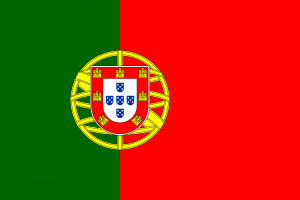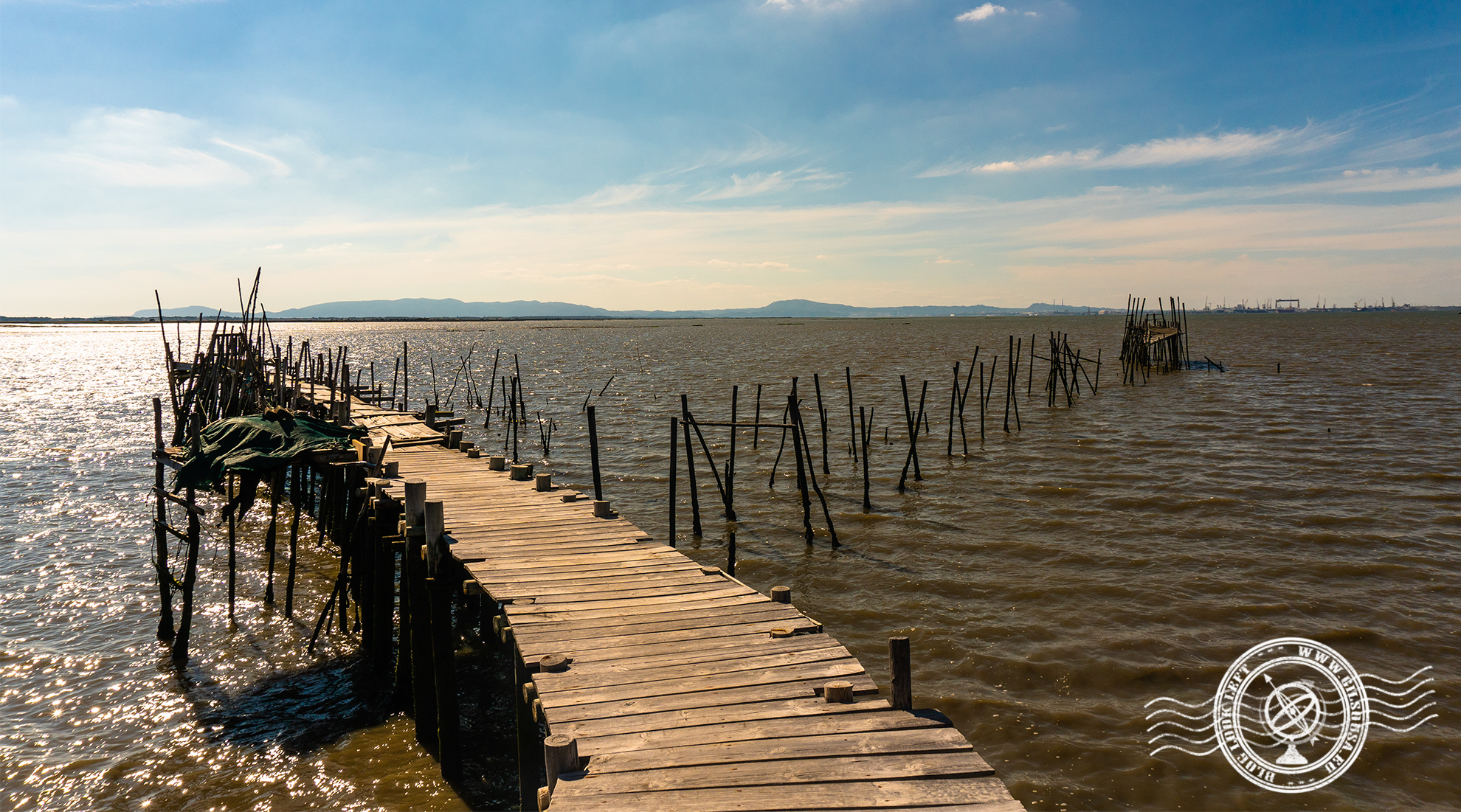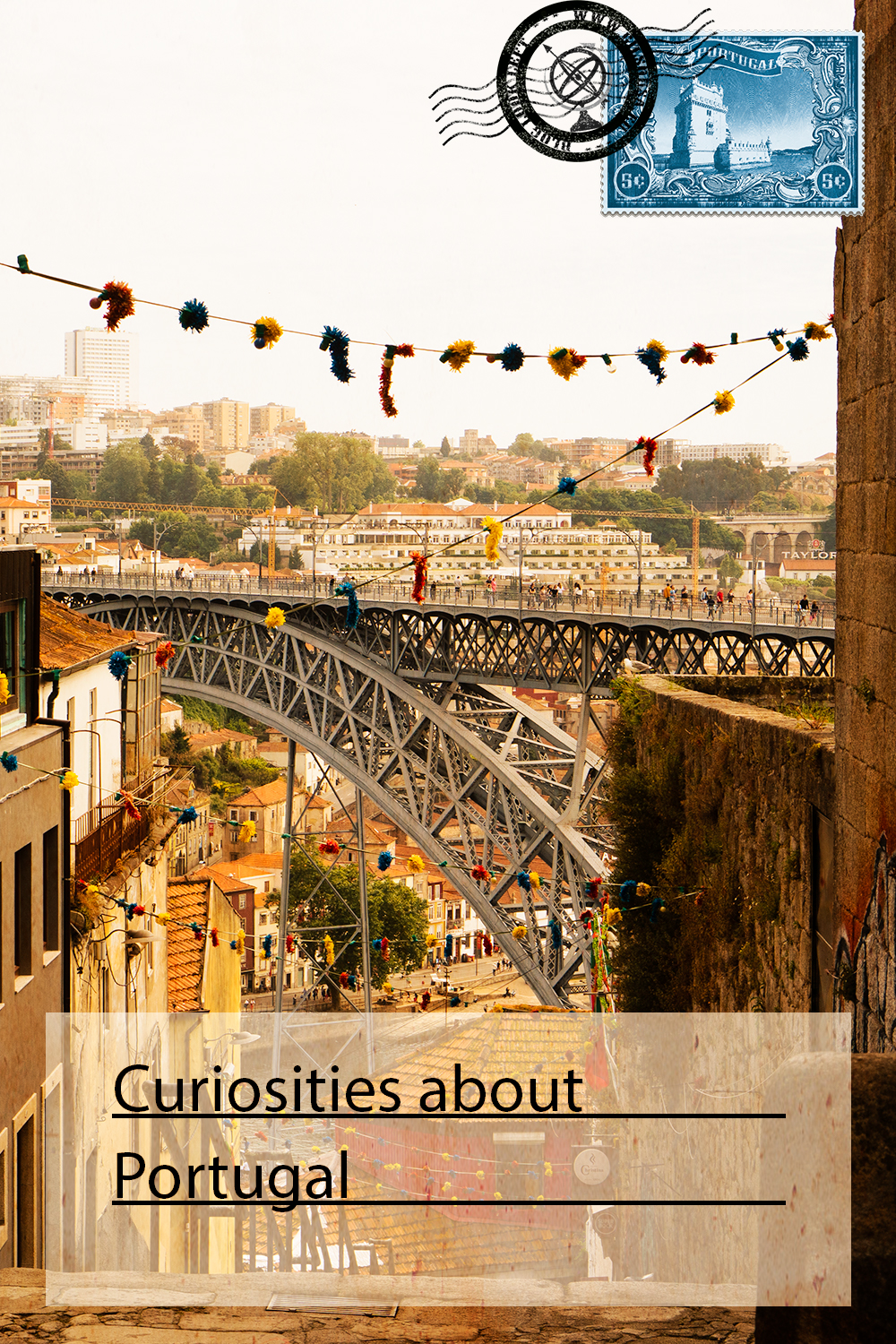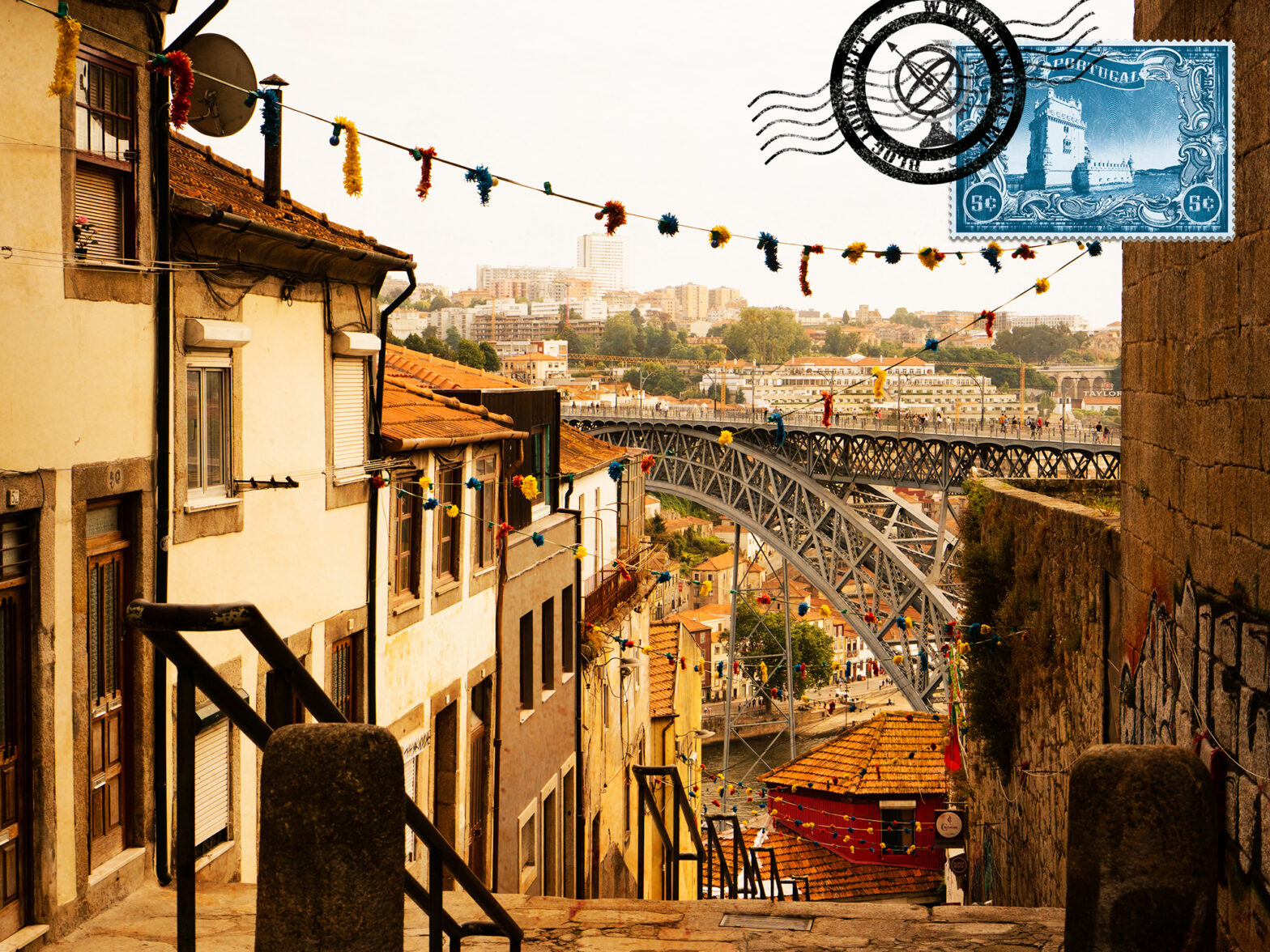The majority of this blog’s readers come from Portugal, therefore this article won’t bring much surprises. Finding lesser known curiosities about Portugal isn’t an easy task, and most likely most of what it is listed below you already know. But who knows if you still can learn something new here?

Capital: Lisbon
Oficial languages: Portuguese, Mirandese
Currency: Euro [ € ]
Time zones: Winter: UTC+0 Summer: UTC+1
Total area: 92 256 km2
Population: 10 374 822
Driving: on the right
Climate: due to the fact that Portugal is right next to the Atlantic Ocean, the climate is moderate. The north is colder and rainier, while the south is hotter and sunnier. Closer to the border with Spain, in the inland, the climate is closer to continental climate. During Summer, the climate is generally sunny and hot with a few chances of rain (more in the north). It can rain all year round, mostly between November and March. The temperatures rarely go below -1/-2ºC in the Portuguese coast, and Winters are usually not intense. On the other hand, during Summer the temperatures can reach over 35ºC in certain areas.
A bit about Portugal’s history
Portugal is one of the countries with the oldest borders in the world, if we exclude the colonies. After all, they were also part of Portugal and until 1999 Macau was still part of our territory. But these old borders we talk about only refer to the European territory, and here yes, we have one of the oldest borders. Even during the Philippine period, Portugal and Spain were under the domain of the same king, but considered as different kingdoms.
The history of Portugal’s geography is well-known, but how about the history before those times? The nations that passed through the territory that is nowadays Portugal, and why our language evolved so distinctively from our neighboring country?
Which nations passed through Portugal before the Romans?
Our origins come way before the Romans, we were invaded by several Indo-European and Celtic nations that originated several different ethnical groups in the territory. Up north the Galaico people, at the center the Lusitanians, the Celtics in Alentejo, and at the extreme south the Cynetes. It was around this time that the writing system was established in the southwest, mostly due to comercial trading with the Phoenician and the Carthaginians whom also passed through there.
This is a really brief explanation of why, nowadays, we have so many influences of so many distinct nations. Even though Portugal is a considerably small country, for several centuries it had distinct influences all over the territory.
Which nations passed through the Portuguese territory after the Romans?
The Roman era is the most known of pre-Portugal’s history, and it was an era the influenced the most our language. However, between that era and the formation of the Kingdom of Portugal, other nations passed through our territory that contributed to our culture.
It was around this time that our first kingdom got established, but not the Kingdom of Portugal, the Kingdom of the Suebi. The very first christian kingdom in Europe, and also the first one to create their own coin.

At the south of our territory another nation was reigning, the Visigoths, whom preached the Arianism (a kind of christianity but not catholic), and they were a minority. But with the help fo the Romans, they managed to conquer almost all Iberian Peninsula. Since the population was mostly catholic, and the Visigoths were a minority, the Kingdom’s stability was always unstable. In 710 a dynastic crisis in the kingdom lead to the Arab invasion and to the fall of the kingdom.
And after this, it is all a very well-known and preached history. But all of this helps to explain why Spanish and Portuguese are so different.
Why Portuguese and Spanish are so different?
Due to so many invasions, nations, kingdoms, religions and so on, a lot of dialects were formed. The “common” language, derived from latin, changed according to what was learnt orally, since education was practically non-existent.
With the establishment of the kingdom of Portugal, this split made the differences between dialects even more distinct. While the same happened to the neighboring kingdoms, with local dialects.
Since the Kingdom of Portugal was established first (comparing with the fusion of the several kingdoms that lead to Spain), the consolidation of the Portuguese language happened before remaining closed to the Vulgar Latin. While in the neighboring territories, still under several realms with local and specific dialects and languages, those languages were not much established nor unified. That’s why nowadays there are several official languages in several Spanish regions.
Some curiosities about Portugal
- Portugal was the first country to abolish slavery (but it was also one of the first that made it a global trading business, but this is tabu since talking about things that are not glorious doesn’t look good in history books)
- We crowned a queen after she was dead!
- Portugal introduced the tea drinking habit to the United Kingdom.
- Officially Portugal does not have an official region, being (in theory) a laic State.
- The 1755 earthquake lead to the start of seismography. The damage surveys requested by the king are the first detailed records of an earthquake and its propagation through the country.
- The most western point in Europe mainland is in Portugal, and if we don’t count Greenland (which is part of Denmark), Azores are the most western point of all Europe! But not of European Union…, France has territories all over, even in the Caribbean…
- The Bertrand store in Chiado (Lisbon) is the oldest library in the world.
- Portugal has two official languages, Portuguese and Mirandese.
- We only have on National Park, while other smaller countries have several, Portugal only has one. I questioned this when I visited Montenegro, our park is something really special and different from all the others in Portugal.
- Portugal is world leader in renewable energies.
- Olivenza is a town disputed between Portugal and Spain, and one of the places in Europe which is still under dispute…
- We also have disputed marine territory with Spain, and to assure the sovereignty, the Portuguese president stays overnight every 3 or 4 years in one isle of the Savage Islands, between Madeira and the Canaria islands.
- The Via Verde, a toll system that doesn’t require to stop the car, and the prepaid mobile phone cards were Portuguese inventions.
- The ATM system in Portugal is one of the most advanced in the world, where we can make an incredible amount of different operations and payments. You can even book a train ticket using the ATM in Portugal!
- The film director who was in active until later (until his death) was Portuguese, Manoel de Oliveira, he was 106 years old when he passed away.
When is the best time to visit Portugal?
Any time of the year! Our climate is moderate, and we have in average 300 sunny days per year, which is fantastic for those who want to visit our corner by the sea. But depending on your plans, I have a few suggestions.
Visiting Portugal in Summer
Portugal is a Summer destination, there is no doubt about this. When you live abroad and you hear other people talking about Portugal (mostly Europeans), most likely the first thing they will say is that they love Algarve. And who doesn’t? It has a gorgeous coast, but also (too) popular…
Our sea isn’t known by the warm waters, we have an Atlantic Coast, and the sea is in general cold. But between the months of July and September this is actually pleasant, with so much heat outside water one just wants to refresh in a cold sea! Or if you prefer warmer currents, Algarve, Azores and Madeira are options a bit more pleasant.
Visiting Portugal in Winter
The worse issue about Winter in Portugal is really the shorter days, but that happens everywhere. Even though, it is a great time to explore some parts of the inner side of Portugal, quite colder areas. But in Winter this cold actually feels good and can become cozy. Mostly if you are visiting our typical villages, or the highest point in Portugal mainland, Serra da Estrela (where you can even see snow!).
If you are really into the sea, then Winter isn’t an excuse not to visit Portugal. If you like surf, then it is the perfect time to catch a stronger sea and better waves. And if you are more adventurous, you have Nazaré and Peniche, but for safer waves, Ericeira and Figueira da Foz are popular areas among surfers.
Visiting Portugal in Spring or Autumn
These two seasons are so similar that they make sense to be together in the same section. The climate is moderate, and sometimes the Summer weather starts earlier and goes until mid October.
For those who want to visit Portugal and avoid crowds, Spring and Autumn are in fact the best seasons to visit this little corner. Accommodation is cheaper, way less people outside, and without queues for restaurants. And if you are courageous, you can even go to the beach and tan a bit!

If your goal is to properly explore the country, then these are the seasons I would recommend to visit Portugal. If the beach isn’t part of your goals, then it is the perfect time to visit a few more touristic sites. Without having to wait 1 hour to take a photo without crowds, or without having to go through endless queues to eat a pastel de Belém. The weather will be moderate, and you will maximize your experience.



Leave a Reply